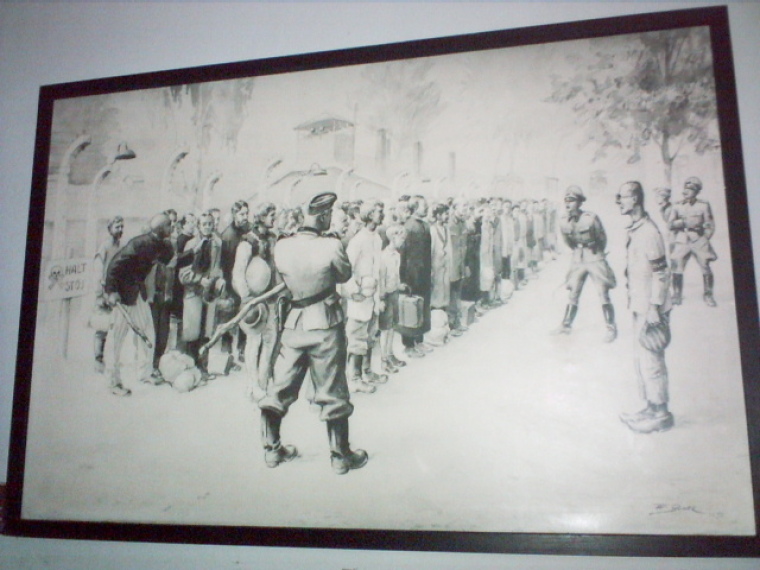

I sat encased in metres of ivory satin, French lace and tulle, my hair coiffed and sprayed to perfection. This was it: my wedding day was finally here.
With anticipation our car neared the church, it was nearly three o'clock in the afternoon—the time had come! We turned the corner to see guests hurrying inside, 'We'll just have to drive around the block' I said to my father. 15 minutes (fashionably) later we were back in the same spot. The crowds had cleared and we were ready to go in.
Then I spotted them out of the corner of my eye: a group of latecomers scurrying into the church. I didn't recognise them and gave them my sharpest glare of reproach. What cheek! Who would dare come late to MY wedding?! Don't they know how important it is to be on time?
Is time different for different people?
In her book Foreign to Familiar, cross-cultural consultant Sarah A. Lanier writes, 'One of the more common cultural differences people talk about is the concept of time. German punctuality is compared to the Mexican mañana (it can be done tomorrow)'.
Lanier explains how in task-oriented, time-oriented cultures life is organised and run by the clock. Other cultures are not as oriented toward the clock, and often value spontaneity and the flexibility to respond to life's events as more important. If you are from a time-oriented culture you may have described this more responsive way of life as 'African Time', 'Island Time' or 'Latin Time'—depending on where you observed it.
No matter the culture, time plays a powerful role in shaping work, life and relationships. Our view of the clock shapes our perception of value. Think of the way most western cultures talk about time—it is a product. Time can be well spent, warped, spare or free. Time can be bought and lost, used or wasted. Then there is the frequently touted maxim underpinning our western understanding: 'time is money'.
Time is money
In an article for the Business Insider author Richard Lewis unpacks this view of time: '...time is truly money. In a profit-oriented society, time is a precious, even scarce, commodity. It flows fast, like a mountain river in the spring, and if you want to benefit from its passing, you have to move fast with it'.
There is great truth in the biblical proverb, 'All hardwork brings a profit, but mere talk leads only to poverty'. It is good to use our time well. It is good to be productive and work hard. However, our cultural obsession with time as a commodity distorts and twists this truth until it is no longer good.
We apply 'time is money' to all areas of our lives. We are over-committed, always-say-yes, never-satisfied individuals in a busy world. If we believe all time is money, any portion of time we spend on a task without a measurable, profitable outcome must be wasting money.
Therefore, we are prone to prioritise tasks over people: numbers of people through the doors of our churches over spiritual growth, or a clean house over one-on-one playtime with a child. We make the mistake of valuing perceived productivity over relationship.
We've been ripped-off by our 'time is money' attitude. Our desire to quantify everything does not match with less tangible things. It is impossible to create a graph to fully chart spiritual maturity. There is no yardstick to measure the depth of a friendship. Even the best scales cannot tell you the weight of true wisdom.
Choosing better
The Gospel of Luke tells the story of Jesus visiting the home of two sisters—Mary and Martha. Mary sat at Jesus' feet, listening to him speak and soaking up his words. Martha raced around, overcome by the list of tasks needing completion.
Maybe she was busy calculating how much bread she needed to feed everyone. Maybe the messy house wanted a good clean. My culture often encourages me to think like Martha—busy and overwhelmed as I look for measurable outcomes to justify how I spend my time. Do you identify? Do you see your life as an endless to-do list? Do you ever feel guilty for resting when you know there is something to be done?
Out of frustration Martha came to Jesus, asking, 'Lord, don't you care Mary has left me to do all the work? Tell her to come help me!'
'Martha, Martha,' the Lord answered, 'you are worried and upset about many things,but few things are needed—or indeed only one.Mary has chosen what is better, and it will not be taken away from her.'
Jesus does not give Martha a free pass to be lazy. He addresses her heart: her worry over timing and details, and her frustration over her sister's inaction. In her short-sightedness Martha was thinking about the immediate, the here-and-now. Jesus gently reminds her to sit and consider the privilege of having the Lord of the universe in her living room. Being present with Jesus is better by far! Like Martha, it is easy to worry more about doing, and forget about being.
Western culture's view of time may help us to work hard, but if we are not careful we can get caught up in work for work's sake. Let's drop the desire to quantify our lives according to output. Let's ditch our obsession with the clock and add a measure of grace—even for late wedding guests!
As Jesus says, we need to remember what is better. We need to remember what is truly needed. Relationship is at the heart of his invitation to Martha, a call to sit at the feet of our creator and worship; a call to follow him. This is the one thing we truly need, and this call to relationship extends to each one of us.
Sophia Sinclair has qualifications in English, Theatre and Journalism. She is a Kiwi living in Sydney with her husband Andrew and their son Guy.
Sophia Sinclair's previous articles may be viewed at http://www.pressserviceinternational.org/sophia-sinclair.html